EDUCATIONAL APPROACH
IMVACC is a student-centered blended learning approach whereby the learner interacts with other students and with the tutors through balanced integration of the online & face-to-face environments.
Students work individually and then share experience with each other through dedicated online fora, chat tool, and virtual conferences.
Customized OnLine Training (COLT) is the main educational approach of IMVACC.
- It offers flexibility, accommodates the time constraints of the trainees, and saves long-distance travel and housing expenses.
- It focuses on case studies and problem solving exercises.
- It is moderated by tutors who will be in regular contact with the students to guide them, to answer questions, and to maintain momentum.
Assessments will fit a formative paradigm
- They are designed to assess learning,
- Acquisition of skills
- to provide an opportunity to make up for gaps in knowledge by offering links to relevant teaching material
TEAM
Tutors
Fabio Candoti - (CHUV) Immunology
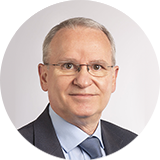
After training in Medicine, Pediatrics, and Pediatric Allergy and Immunology at the Italian Universities of Brescia and Pavia, Prof. Candotti was granted a NIH Postdoctoral Fellowship in the laboratory of Dr. Michael Blaese at NCI and NHGRI before joining the Department of Pediatrics of the University of Brescia as an Assistant Professor in 1996 and eventually accepting a position at NHGRI that led to tenure at that institution in 2004. Ten years later, Prof. Candotti moved back to Europe to join the Division of Immunology and Allergy of the university Hospital of Lausanne in Switzerland, where he is Associate Professor of Medicine and Director of the Vaccine and Immunotherapy Center.
Throughout his career, Prof. Candotti focused on the study of the molecular basis of disorders of the immune system and the development gene therapy strategies for this heterogeneous group of diseases. He contributed to the discovery of JAK3-deficiency and AK2-deficiency as causes of SCID and performed extensive pre-clinical studies in the murine model supporting the feasibility of gene therapy for X-linked SCID and the Wiskott-Aldrich syndrome. From 2001 until 2014, Prof. Candotti co-led a series of gene therapy clinical trials for ADA-deficient SCID patients that studied the efficacy of different retroviral gene transfer vectors in humans.
Prof. Candotti has authored more than 110 peer-reviewed publications and numerous reviews and book chapters in the fields of immunodeficiency and gene therapy and is currently a member of the Editorial Board of the Journal of Clinical Immunology.
Yannick Muller - (CHUV) Immunology
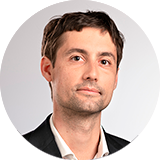
2007: Swiss Federal Medical Diploma, Faculty of Medicine, University of Geneva
2007-2011: MD-PhD, Potential of T regulatory cells to protect pancreatic islet grafts, University of Geneva
2011-2014: Residency in internal medicine, University Hospital of Geneva
2014-2016: Residency in immunology and allergy
2016-2017, Residency in transplantation, University Hospital of Lausanne
2017- 2020, Postdoctoral fellowship on cell therapies engineering, University California, San Francisco (UCSF)
2020-ongoing, Senior attending physician in immunology and allergy, University Hospital of Lausanne,
2021-ongoing, Assistant Professor, tenure track, Faculty of Biology and Medicine, University of Lausanne
Ivana Knezevic - (WHO) Regulatory affairs

Dr Ivana Knezevic is Scientist in Technologies, Standards and Norms Team, and Group Lead of Norms and Standards for Biologicals in the Department of Essential Medicines and Health Products (EMP) in the World Health Organization (WHO), Switzerland.
Dr Ivana Knezevic has 22 years of professional experience in standardization, scientific and regulatory overview of biologicals. She joined WHO Biological Standardization Programme in September 2000. Since 2006, she has been leading the team for standardization of vaccines and some biological therapeutics in WHO Headquarters. Main aspects of the work include development and establishment of WHO International Standards as well as the assistance to regulators, manufacturers and other users of these standards.
In the area of biotherapeutics, she coordinated the development of WHO’s Guidelines on evaluation of Similar Biotherapeutic Products (SBPs), and organized a series of workshops to facilitate the implementation of guiding principles for evaluation of biotherapeutic products into regulatory and manufacturers’ practices.
Laurent Perez - (CHUV) vaccinology
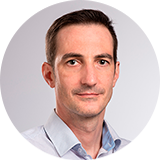
2003 PhD–Biochemistry at European Molecular Biology Laboratory. Heidelberg, Germany.
2004-2006 Post-Doc–Biophysics at European Molecular Biology Laboratory. Heidelberg. Germany.
2006-2010 Research scientist at Novartis Institutes for BioMedical Research. United Kingdom.
2011-2020 Principal investigator. Institutes for Research Biomedicine. Switzerland.
2020-to date Professor (associate), Faculty of Biology and Medicine, University of Lausanne. Switzerland
Pascale Anderle - (HSeT) Statistics
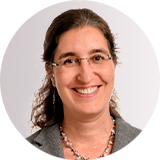
Pascale Anderle graduated in pharmacy from the Swiss Federal Institute of Technology Zurich (ETHZ). After gaining a PhD degree in life science from the ETHZ she then worked for a year at Covance CLS, Geneva in the field of clinical trials. Later, she moved to the USA for a postdoc experience in the lab of Wolfgang Sadee at UCSF San Francisco and OSU, Ohio concentrating on absorption and genomics in the intestine.
Afterwards, she joined the groups of Jean-Pierre Kraehenbuhl and Michel Aguet as postdoc fellow at the Swiss Institute for Experimental Cancer Research (ISREC), partially in collaboration with the Nestle Research Center (NRC). The focus of her studies were on mucosal intestinal immunity and colon cancer and the use of genomics and in silico analysis. Being granted an EU project she moved to Istituto Oncologico della Svizzera Italiana (IOSI, Bellinzona) as junior group leader and then upon being invited to join a NCCR project to the University of Bern. During this period she was granted a CAS in applied statistics.
She is now a project coordinator for statistics and translational medicine. She participates in teaching activities at the University of Lausanne and ETHZ.
Health Sciences eTraining (HSeT) Foundation
Ch. des Boveresses 155
1066 Epalinges
CH – Switzerland
Phone +41 79 627 62 78
Jean-Pierre Kraehenbuhl - (HseT) Microbiology
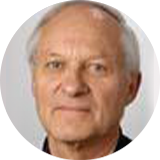
Jean-Pierre Kraehenbuhl, MD, is the Chief Executive Officer of the Health Sciences eTraining (HSeT) Foundation. He is emeritus Professor at the University of Lausanne and Consultant at the Division of Immunology & Allergy of the University Hospital (CHUV), Lausanne, Switzerland. His field of expertise is mucosal immunology and vaccinology. He is a member of EMBO and the scientific co-founder of Oravax, now Acambis Ltd.
Jean-Pierre Kraehenbuhl received an M.D. from the University of Lausanne, Switzerland in 1967 and a PhD in 1973. He completed a postdoctoral fellowship with George Palade at the Rockefeller University and subsequently became an assistant professor at Yale University School of Medicine. In 1975, he returned to the Institute of Biochemistry at the University of Lausanne, where he became a full professor in 1984. He joined the Swiss Institute of Cancer Research (ISREC) as a senior staff member, working on epithelial-cell membrane trafficking, mucosal immunity and mucosal vaccine design.
Health Sciences eTraining (HSeT) Foundation
Ch. des Boveresses 155
1066 Epalinges
CH – Switzerland
Phone +41 21 692 58 56
Fax +41 21 692 57 15
Experts
Hervé Bourhy - Institut Pasteur Paris
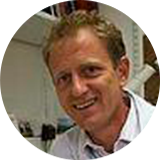
Head of the Pasteur Institute Unit (DyLAH), Head of the WHO collaborating Centre for Reference and Research on Rabies, Head of the National Reference Centre for Rabies.
Vincent Deubel - Institut Pasteur, Paris
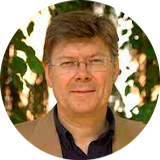
Vincent Deubel joined the Institut Pasteur International Network in 1977 and went to Institut Pasteur in Dakar, Senegal, to study molecular biology of yellow fever viruses. He obtained his Doctorate in Sciences in virology from the University of Paris VII in 1985. He went to the US CDC, Colorado, USA, for 2 years to develop researches on dengue virus and came back to Institut Pasteur in Paris where he headed the Unit of Arboviruses and Hemorrhagic fevers. He became the Director of the Mérieux-Pasteur Research Center in Lyon and the scientific director of the BSL-4 laboratory Jean Mérieux from 2000 to 2004. Then he went to Shanghai to create the Institut Pasteur of Shanghai he managed until July 2009 in cooperation with the Chinese Academy of Sciences. Then, he took the position of Director of Institut Pasteur in Cambodia to promote new strategies of biomedical research in cooperation with the Ministry of health in Cambodia. He retired in October 2014.
Vincent Deubel’s research has been mainly focused on flaviviruses and zoonotic viruses causing hemorrhagic fever and encephalitis. He has contributed to the development of novel diagnosis tests, molecular epidemiology, vaccinology and to the understanding of the mechanisms that lead to pathogenesis. He has developed several approaches using recombinant gene expression systems and animal models for novel preventive measures against viral infection. He still participates to several international networks on dengue and other arboviruses.
Overall, he is the author of 150 articles published in international scientific journals and has contributed to writing tens of book chapters, journal reviews and patents.
Jonathan Fuchs - PHD, San Francisco, USA
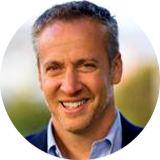
Dr. Jonathan Fuchs is the Director of the Center for Learning and Innovation at the San Francisco Dept. of Public Health (SFDPH) and Associate Clinical Professor of Medicine at UCSF. He completed his medical degree at the University of Medicine and Dentistry of New Jersey, Robert Wood Johnson Medical School, a Masters in public health from the Mailman School of Public Health at Columbia University, and completed his internal medicine residency at UCSF. For the past 11 years, Dr. Fuchs has led a team to conduct NIH, CDC, and industry-sponsored clinical trials of preventive HIV vaccines as well as other novel biomedical HIV prevention strategies. His research and program development interests include early and late phase HIV vaccine trials, social and behavioral issues relevant to HIV prevention, as well as creating innovative training opportunities for new investigators who are dedicated to advancing HIV prevention research locally and globally. He is the Director of the UCSF Center for AIDS Research (CFAR) Early Stage Investigator Mentoring Program, and this year, Dr. Fuchs has launched a new Center at the SFDPH focused on training and capacity building to address current and emerging public health issues.
Peter Gilbert - Fred Hutchinson, Seattle, USA
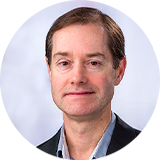
Dr. Peter Gilbert, Ph.D., is a Full Member of the Vaccine and Infectious Disease and Public Health Sciences Divisions of the Fred Hutchinson Cancer Research Center, where he is PI of the Statistical Data Management Center for the HIV Vaccine Trials Network. He is also a Research Professor in the Department of Biostatistics at the University of Washington School of Public Health and Community Medicine.
Dr. Gilbert has conducted research in HIV/AIDS clinical trials since 1994. He is an author of many peer-reviewed articles in the area of vaccine efficacy trials, balanced between statistical methodological and collaborative research. Dr. Gilbert is a leader in the biostatistical design and analysis of HIV vaccine trials including Phase I/II safety and immunogenicity studies and Phase IIb and III efficacy trials. Dr. Gilbert is currently leading the biostatistical analysis of immune correlates of protection in the RV144 ‘Thai Trial.’ Dr. Gilbert’s statistical methods research focuses on the evaluation of immune correlates of protection including the ‘sieve analysis’ of HIV sequences, as well as the general evaluation of surrogate endpoints, causal inference, and survival analysis. Dr. Gilbert’s service includes membership on DSMBs and on the U.S. FDA’s Vaccines and Related Biological Products Advisory Committee (VRBPAC).
Odile Leroy - European Vaccine Initiative, German
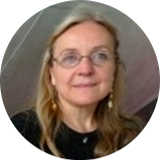
Trained as a physician, specialized in epidemiology, clinical pharmacology and vaccinology, Dr Odile Leroy has spent most of her carrier in vaccine development, as a scientist in Africa for nine years, as corporate clinical director of airborne vaccines for 10 years at Sanofi Pasteur. She joined European Malaria Vaccine Initiative (EMVI) in 2002 as a clinical and regulatory director, and from 2005 to 2006 she lead as executive director of the EDCTP. Since 2009 she is executive director at European Vaccine Initiative (EVI).
Her main interest is the implementation of best practices in the field of vaccine development against diseases of poverty. In order to maximise concerted European investments, she is coordinating several European vaccine research projects which aim to harmonise and set up rationale decision making criteria. She is also coordinator of the vaccine infrastructure project TRANSVAC. She is member of the Scientific Organising Committee of the Global Immunisation and Vaccine Research Forum co-organised by WHO, NIH, and BMGF.
Zoe Moodie - Fred Hutchinson, Seattle, USA

Zoe Moodie is a faculty statistician at the Statistical Center for HIV/AIDS Research and Prevention within the Vaccine and Infectious Disease Division at the Fred Hutchinson Cancer Research Center in Seattle, USA. Since 2001, Dr. Moodie has served as lead statistician on numerous HIV vaccine trials conducted by the HIV Vaccine Trials Network, on HIV and other infectious disease vaccine trials with the Vaccine Research Center at the NIH, on cancer immunotherapy trials, and a malaria vaccine trial with the Seattle Biomedical Research Institute.
Her research interest centers around statistical analyses of immunologic data relevant to HIV vaccine research, in particular on nonparametric estimation methods.
Sandie Munier - Institut Pasteur, Paris
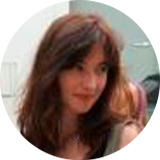
Sandie Munier obtained her PhD degree in 2005.In 2007, she joined the group of Nadia Naffakh as Assistant-Professor at Université Paris 7. At that time her research interest was the mechanisms of HIV-1 genome nuclear import.
Currently she works in the Unit of Molecular Genetics of RNA viruses at the Institut Pasteur in Paris.
Matthieu Perreau - University Hospital (CHUV), Lausanne

Matthieu Perreau is a senior immunologist at the Department of Immunology and Allergy, Lausanne University Hospital, in Switzerland. He received his undergraduate degree at Nottingham Trent University in Microbiology and Biochemistry and then completed his Master’s in Haematology at the University of Denis Diderot in Paris. He subsequently joined Dr Eric Kremer’s laboratory at Montpellier II University, France, to obtain his PhD during which he focused on the interactions between viral vectors and the human immune system.
In 2006, Dr Perreau joined Professor Giuseppe Pantaleo’s laboratory in Lausanne University Hospital, Switzerland, and investigated several projects in basic and applied immunology focusing on the evaluation of HIV-1 vaccine immunogenicity and on the delineation of HIV-1 immunopathogenesis. His research has been acknowledged in several publications including Journal of Virology, Journal of Experimental Medicine and Nature Medicine.
Philippe Sansonetti - Institut Pasteur, Paris
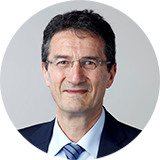
My scientific approaches have been influenced by the dual need to decipher infection as microbe-cell cross talks, and to analyse infectious diseases in an integrative dimension encompassing host responses. On these bases, I have also tried to develop a rational approach for the design of bacterial vaccines. This reflects my training in basic research at Institut Pasteur and in internal medicine in Paris hospitals. In the late seventies, I selected invasive pathogens that recapitulate all the interaction steps, and pioneered the field in establishing Shigella flexneri and Listeria monocytogenes as models by combining genetics and development of cell assay sytems. Discovery of the Shigella virulence plasmid encoding cell invasion and reconstruction of a fully virulent Shigella from Escherichia coli K12, demonstration that Shigella escape in the cell cytoplasm, development of the first transposon mutagenesis in L. monocytogenes demonstrating the pathogenic role of listeriolysin, and demonstration of epithelial cell invasion by L. monocytogenes, are generally considered landmarks that influenced development of the field of molecular and cellular pathogenesis of bacterial infections.
These early contributions convinced me of the strong potential of applying a multidisciplinary approach to the field, interfacing genetics, biochemistry, and soon cell biology, immunology and experimental medicine in a way that became a sort of paradigm. This generated three discoveries that were key to the making of Cellular Microbiology: actin polymerisation in entry of Shigella into epithelial cells, actin-based intracellular motility of Shigella, and Shigella killing macrophages by pro-inflammatory apoptosis, unexpectedly due to activation of caspase-1, an anticipation of the recognition of inflammasome. We then dissected the signalling pathways triggered by Shigella while invading epithelial cells, participating to emergence of the concept of Type III secretion. On the global scale of tissue infection and immunological responses, we showed the need for Shigella to elicit inflammation to disrupt the epithelial barrier. In the last 10 years, we have promoted two important novel concepts: (i) intracellular sensing of bacteria leading to the discovery of Nod molecules as cytosolic sensors, and identification of bacterial muropeptides as their proinflammatory agonists. This has now become a lively field that touches upon a large array of inflammatory diseases, and the concept of “danger signalling”. (ii) Identification of Shigella effectors regulating the host innate response. This has allowed to decipher a bacterial “cat & mouse” strategy focussed on manipulating ubiquitination of key host regulatory molecules, and to demonstrate for the first time, that bacteria can subvert the host innate response through epigenetic regulation involving manipulation of the histone code. A clear example is our recent demonstration that Shigella can regulate expression of epithelial antimicrobial peptides at the transcriptional level.
All this basic bacground has been a knowledge platform to design novel vaccine strategies against Shigella infection. The rational attenuation of major serotypes such as S. flexneri 2a and S. dysenteriae 1 has provided two orally-delivered, live attenuated candidates which have now undergone phase 1 and 2 clinical trials with promising results, even though major issues remain regarding differences in colonization and immunogenicity in populations living in industrialized or endemic areas, and serotype-specificity of protection. STOPENTERICS, under my coordination, is expected to addres these key – but complex – issues for both Shigella and ETEC vaccine development. Novel strategies will be developed, such as the discovery of new cross-protective antigens, the enhancement of antigenicity of key candidate molecules (i.e. ETEC ST toxin), and the development of a new generation of conjugate Shigella vaccine based upon synthetized surface sugars conjugated to virulence-related proteins.
Recently, thanks to the award of a European research Council Advanced Grant, I have started a novel project addressing the role of the gut microbiota in the development/maturation of the crypt-villus axis. The aim is to identify the bacterial components and the signalling cascades involved in establishing the homeostasis of this microbe-host balance, and to analyse how it is disrupted by bacterial pathogens.
Frédéric Tangy - Institut Pasteur, Paris

Frédéric Tangy, PhD, Dr.Sc., is Director of research at CNRS and head of the Viral Genomics and Vaccination laboratory at Institut Pasteur (CNRS URA-3015). He made his carreer as a virologist in CNRS and Institut Pasteur. In the recent years, he has developed two research programs :
1) the generation of polyvalent viral attenuated vaccines based on a vector derived from measles vaccine (design of antigens, construction of replicating recombinant vectors, preclinical and clinical development in the field of HIV, dengue and malaria),
2) the mapping of the interactions between viral and host proteins in a systematic way using functional genomic approaches to identify new targets for drugs and new determinants of pathogenicity/attenuation. In 2008 he launched with Armelle Phalipon the international Vaccinology course of Institut Pasteur.
Nathalie Winter - INRA, Tours, France
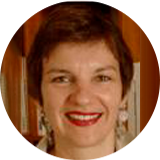
Nathalie Winter (PhD) has spent fifteen years working on Mycobacterium bovis BCG, the only vaccine currently available to fight against TB. She has developed a number of delivery systems to express genes in recombinant BCG vaccines and tested their protective efficacy in animal models after administration by a number of routes, including mucosal routes (Badell et al., 2009, Lim et al., 1997, Méderlé et al., 2002, Méderlé et al., 2003, Winter et al., 1995).
From 2000, she turned her research focus to gaining a better understanding of the mechanisms of the immune response to BCG vaccine, She reported that neutrophils can deliver BCG to the lymph node draining cutaneous vaccination site (Abadie et al., 2005) and cooperate with dendritic cells to prime T lymphocytes (Morel et al., 2008). She recently described that BCG vaccination recruits another granulocytic population, akin to Myeloid Derived Suppresssor cells described in cancers, that could play important roles in regulating T-cell priming early following BCG injection (Martino et al., 2010).
She participated to studies conducted by the American colleagues to image the early phase of granuloma formation following BCG injection in liver. These studies emphasized the key role of early TNF to guide T lymphocytes to form and stabilize the granuloma structure (Egen et al., 2008). She has published 42 papers in PubMed referenced journals and her H factor is 23.
Armelle Phalipon - Institut Pasteur, Paris
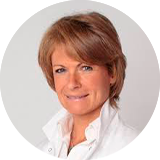
Armelle Phalipon has lead the group working on adaptive immunity to Shigella infection and development of vaccine strategies in the Molecular Microbial Pathogenesis Unit directed by Professor Philippe Sansonetti (Institut Pasteur). With more than 15 years of experience working on Shigella, she has deciphered the targets and effectors of the humoral response to infection and discovered two novel molecular mechanisms of secretory IgA-mediated protection at mucosal surfaces. She is currently studying the direct targeting of cells of the adaptive immunity by Shigella virulence effectors and its consequence in term of induction of the adaptive immune response.
Dr. Phalipon has a long-standing interest in combining fundamental and applied research, as exemplified by her participation in the development of dipsticks for diagnosis of shigellosis in emergency conditions based on the use of monoclonal antibodies, generated by her, for fundamental research purposes. In addition, in collaboration with Dr. Laurence Mulard (Chemistry of Biomolecules Unit, Institut Pasteur), she has developed an alternative approach to design subunit vaccines to Shigella infection, i.e. chemically defined glycoconjugate vaccines based on the use of synthetic oligosaccharides mimicking the protective epitopes of the polysaccharide moiety of lipopolysaccharide, the main protective Shigella antigen. A phase I trial will be started in 2016. Dr. Phalipon has been member of the WHO Steering Committee for Diarrheoal Diseases. Deeply involved since many years in teaching activities both at the national and international level, she launched in collaboration with Frédéric Tangy the first Vaccinology Course at the Pasteur Institute in 2008.
